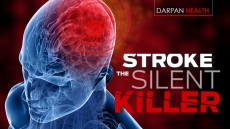Examining health consequences of too much or too little sleep, an expert panel convened by the US National Sleep Foundation has made new age-based recommendations on how much sleep people need.
While newborns (up to three months) need 14-17 hours of sleep each day, infants (four to eleven months) should get at least 12-15 hours of sleep, the researchers recommended.
They added that teenagers (14-17 years) need to get at least eight to 10 hours of sleep, but adults should not sleep less than seven hours a day and nor should they exceed nine hours.
The experts added that parents should ensure their school age children (six to thirteen years) get not less than nine hours of sleep at night. It is all right for them to sleep up to 11 hours.
While 11-14 hours of sleep is recommended for toddlers of one to two years of age, children between three to five years should get 11-13 hours of sleep.
The multidisciplinary panel of experts examined findings from 320 studies reporting sleep duration findings for healthy individuals, effects of reduced or prolonged sleep duration and health consequences of too much or too little sleep.
"The process was very rigorous," said member of the expert panel Lydia DonCarlos, professor at Loyola University Chicago Stritch School of Medicine in the US.





